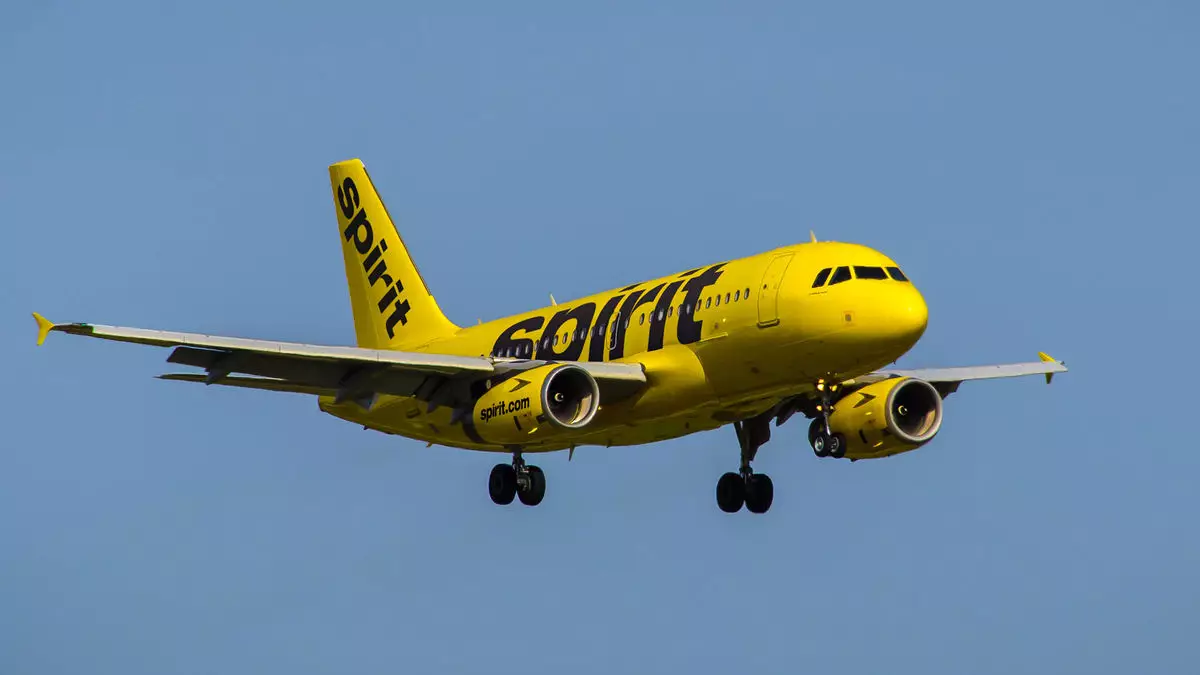Spirit Airlines is currently at a critical juncture, inching toward a possible bankruptcy filing amidst ongoing negotiations with a majority of its bondholders. These negotiations revolve around considerable financial obligations, including approximately $1.1 billion tied to its loyalty program, due in the coming year. In the wake of these negotiations, Spirit has expressed confidence that customer operations — including existing bookings and flight schedules — will proceed without disruption, aiming to reassure consumers in a time of uncertainty.
The repercussions of these financial dealings have already been felt in the stock market, as Spirit’s shares plummeted by over 50% following their announcement on November 12th. Such a drastic drop highlights the anxiety of investors regarding the airline’s financial health. With the company’s decision to potentially wipe out shareholders during the restructuring process, it underscores the dire situation Spirit finds itself in, further compounded by previous operating losses that totalled $360 million this year alone.
In late October, there were speculations surrounding a potential merger between Spirit and Frontier Airlines, both known for their low-cost travel options. However, the optimism was short-lived, as recent reports indicated that Frontier has opted against pursuing an acquisition. This withdrawal leaves Spirit at a crossroads, with the restructuring agreement with bondholders becoming its most viable option.
Previously, Frontier had attempted to take over Spirit in 2022, but the deal crumbled when JetBlue outbid them. Following a failed merger with JetBlue, which was thwarted by the Department of Justice over antitrust concerns, Spirit has been left grappling with how to stabilize its operations amidst a harsh financial landscape.
Acknowledging its precarious position, Spirit Airlines has initiated several strategic moves in an attempt to retain liquidity and bolster its revenue streams. The decision to sell 23 Airbus aircraft for $519 million represents a significant effort to raise much-needed capital. Additionally, the airline has reduced its flight schedules by 20% for the fourth quarter, an indicative move aimed at curtailing further financial losses.
Moreover, the introduction of new fare bundles and priority check-in services illustrates Spirit’s attempt to attract a more affluent customer base, thus diversifying its revenue model. While management has meticulously navigated these adjustments, delays in reporting its third-quarter financial outcomes have raised flags among stakeholders, suggesting that their focus has been heavily diverted towards reaching an agreement with bondholders.
As Spirit Airlines embarks on a turbulent journey towards potential restructuring, all eyes remain on the outcome of its negotiations with bondholders. The implications of these discussions carry significant weight for the airline’s operational future, shareholders, and, crucially, its customers. In an environment where low-cost carriers frequently compete on thin margins, the resolve of Spirit Airlines to adapt may ultimately determine its ability to weather the storm and emerge as a competitive player in the aviation market. The landscape remains uncertain; however, the steps Spirit takes now will likely define its path forward.


Leave a Reply